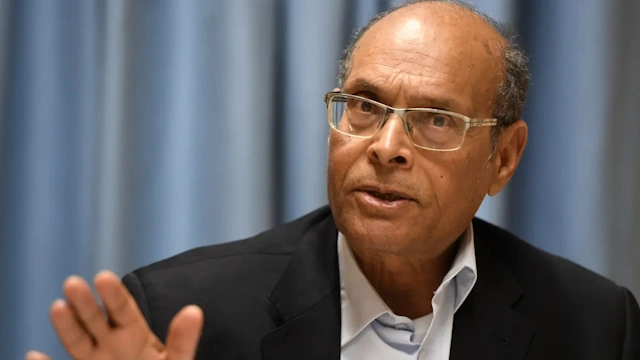Victims of Kais Saied’s Human Rights Violations in Tunisia
This section highlights the victims of violations that individuals from various intellectual and political groups in Tunisia have been subjected to since the Kais Saied regime took power. This section aims to document violations and provide updated information on the various cases that have affected activists, politicians, media professionals, judges, lawyers, bloggers, and businessmen, who have been subjected to arbitrary practices and violations of their basic rights.
A Message to Visitors and Users
“Documenting the stories of victims and continuously updating information is a necessary step towards uncovering the truth and opening the path to justice. We believe that building a free, just, and democratic society begins with recognizing and resisting injustice.”

Moncef Marzouki
On October 14, 2021, Kais Saied said, while presiding over a cabinet meeting, that he “will withdraw diplomatic passports from those who went abroad begging outsiders to undermine Tunisian interests.

Rached Khiari
Khiari is being prosecuted and six cases are being pursued against him because of his political views and his call to investigate the President of the Republic accusing him of receipt of suspicious funds to be used in his electoral campaign.

Abdellatif Aloui
Aloui was arrested along with Al-Zaytouna TV journalist Amer Ayyad, in connection with the broadcast of a poem on a television program that was considered a offensive to President Saied and a distortion of the army’s image.

Walid Jallad
On the day of his arrest, Jallad wrote a post on his Facebook page in which he said: “All support for Mosaique Radio and its employees now that an editorial line can be considered a crime.”

Mustafa Ben Ahmed
August 9, 2023: He appeared before the Anti-Terrorism Squad as part of a case of conspiracy against state security.

Ridha Driss
Driss’ name was included in a list of 27 political figures accused of conspiring against state security, which is a political case.

Riadh Chaibi
Accused by the Saied regime of conspiring against state security as an advisor to the head of the Ennahdha Party, Rached Ghannouchi, and his house was raided and searched without judicial permission.

Ghazi Chaouachi
After visiting her client, lawyer Ines Harath stated that he is deprived of the most basic prisoner rights, including bathing and medical treatment, and that he was transferred to an extremely dirty room full of bugs and lacking any health facilities.

Ridha Belhaj
Lawyer Ines Harath accused authorities of endangering the lives of the political detainees by placing them with carefully selected common crime prisoners, most of whom were imprisoned for premeditated murder crimes.

Noureddine Bhiri
December 20, 2023: A second imprisonment order was issued against Bhiri “without interrogation, in a case in which the defense committee challenged the integrity of its procedures and the charge,” according to a statement from the Ennahdha Party.
